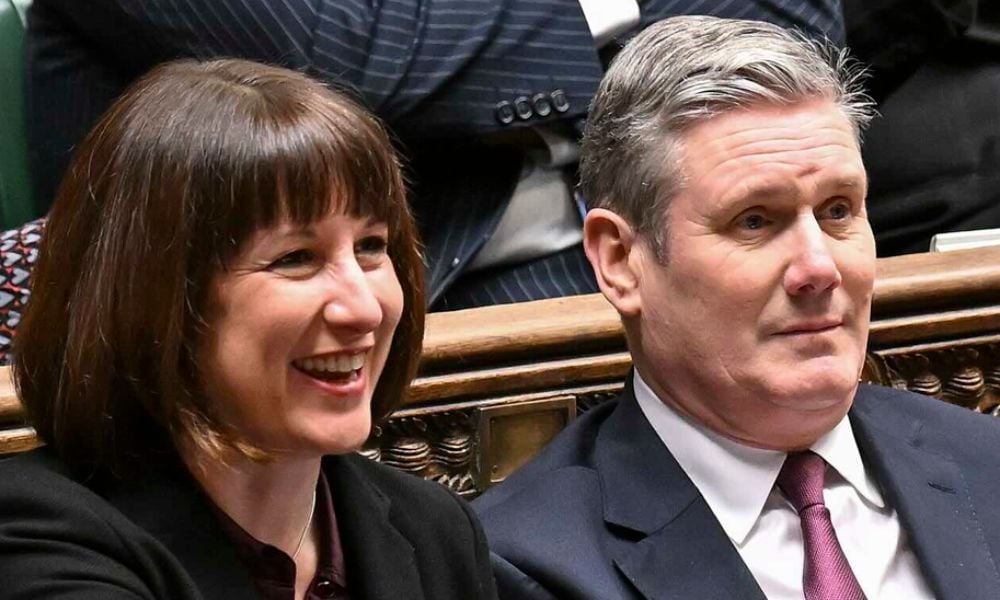Brace yourself, investor clients and business owners!

As we’ve already reported, capital gains tax is a big fat target in the new Labour government’s sights – even though CGT tax receipts are up, and any such move might finish off the buy-to-let market that so many renters rely on.
According to The Guardian’s sources, Rachel Reeves is exploring the possibility of raising capital gains tax (CGT) rates as high as 39% in the upcoming budget as she faces pressure to generate funds for public services.
Treasury documents currently being reviewed by the Chancellor indicate a range of potential CGT increases, reportedly with rates between 33% and 39% under consideration. This profit tax could whack around 350,000 individuals in the UK each year and targets the sale of assets such as second homes and shares, currently taxed at lower rates than income, an incentive for individuals to risk their capital and boost investment in the UK.
Read more: Borrowing costs rise as Reeves budget fears spread
Government insiders have reported growing anxiety to The Guardian over the limited options available to close a financial gap that the Institute for Fiscal Studies (IFS) estimates could reach £25 billion before the budget announcement on October 30.
The fact that these tax decisions still haven’t been already made will be causing increasing nervousness in the market, as shown by a flood of property sales by owners scared of a massive tax hit.
Read more: Selling 'frenzy' as property investors try to avoid Labour tax grab
Despite promises from Reeves and Labour leader Keir Starmer not to increase taxes for "working people," the Treasury's difficulties in raising funds through other means have led to concern within the government. With proposals for other wealth taxes faltering, officials warn that time is running out to identify new revenue streams. The Chancellor has been advised that targeting non-domiciled individuals and private equity executives may not be effective, as it could prompt wealthy individuals to leave the UK, potentially reducing overall revenue.
A Treasury spokesperson dismissed claims of "disarray," calling the speculation inaccurate and refusing to comment on specific tax measures ahead of the budget. However, some sources indicate that significant increases in both CGT and inheritance tax (IHT) are being reconsidered. Government officials are racing to provide fresh analysis to the Office for Budget Responsibility (OBR) for evaluation before final decisions are made.
Read more: CGT take soars – even BEFORE a potential rate hike by Rachel Reeves
The new Treasury modelling suggests that if CGT rates are raised, a spectrum of 33% to 39% is being evaluated, particularly on assets like second homes. Currently, gains from the sale of these properties and shares are taxed at much lower rates than earned income, which can reach up to 45%. The proposed hike would still fall short of equalising CGT with income tax rates, as some Labour MPs have suggested.
Internal documents outline various scenarios, noting the uncertainty around how individuals might respond to higher CGT rates. Although only around 350,000 taxpayers pay CGT each year, they contribute approximately £15 billion in tax receipts, according to the IFS. At the lower end of the proposed changes, increasing the rate from 28% to 33% could generate hundreds of millions for the exchequer, while mid-range adjustments could raise around £1 billion. However, a more aggressive increase to 39% might reduce CGT revenue in the longer term due to behavioural changes among investors. This analysis mirrors findings from HM Revenue and Customs published earlier this year.
Currently, capital gains on non-primary residential properties are taxed at 24%, with rates ranging from 18% to 28% for carried interest on managed funds and 20% for other types of assets. In anticipation of potential tax hikes, wealth managers report a surge of investors seeking to sell assets like second homes before the new rates take effect.
Reeves’s fiscal strategy has faced criticism, with Starmer recently sidestepping questions about whether Labour would impose national insurance on employers’ pension contributions—a move the IFS claims could generate £17 billion annually. However, business leaders warn that such a measure could increase operating costs and deter companies from offering pension benefits.
Read more: Reeves hints BTL mortgage holders, others, could be hit by tax hike
Some economists argue that raising CGT without broader reform might not yield the expected results, given the tax's complexity. The IFS has urged the government to establish a stable and predictable CGT framework, emphasising that uncertainty discourages investment. In a recent policy paper, they noted: "Instability and unpredictability are bad for investment." The Chancellor appears to agree, having ruled out any tax measures that might worsen the UK's economic situation.
When in North America on a campaign to attract international investment emphasising that the UK remains open for business, Reeves highlighted the need to balance revenue generation with economic growth, stating, “I won’t do anything that makes it harder to achieve that economic growth and prosperity.” While Reeves hinted at a CGT increase as she attempts to fill the budget deficit, she also expressed her commitment to avoiding tax policies that negatively impact working people.
Picture: UK Parliament, This file is licensed under the Creative Commons Attribution 3.0 Unported license.



